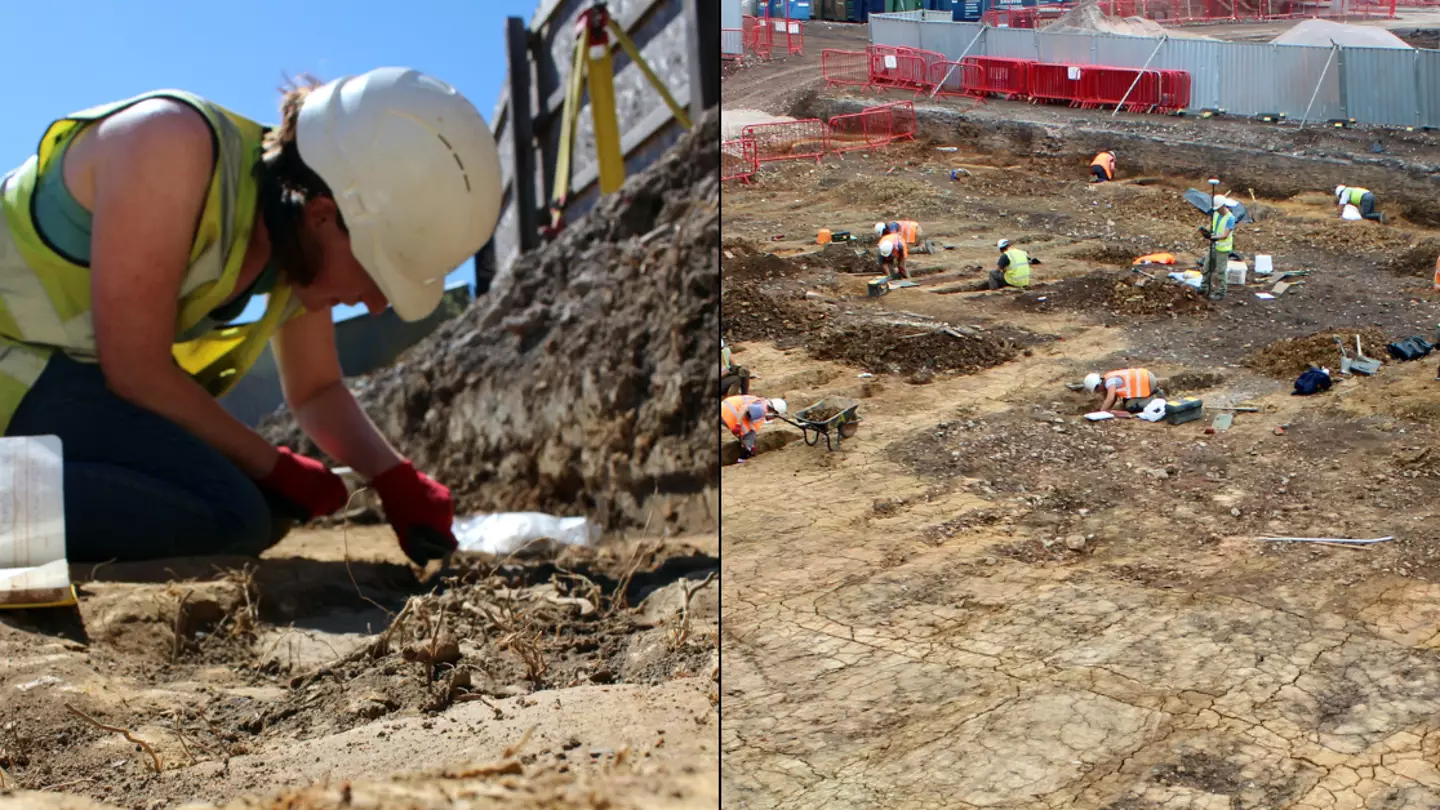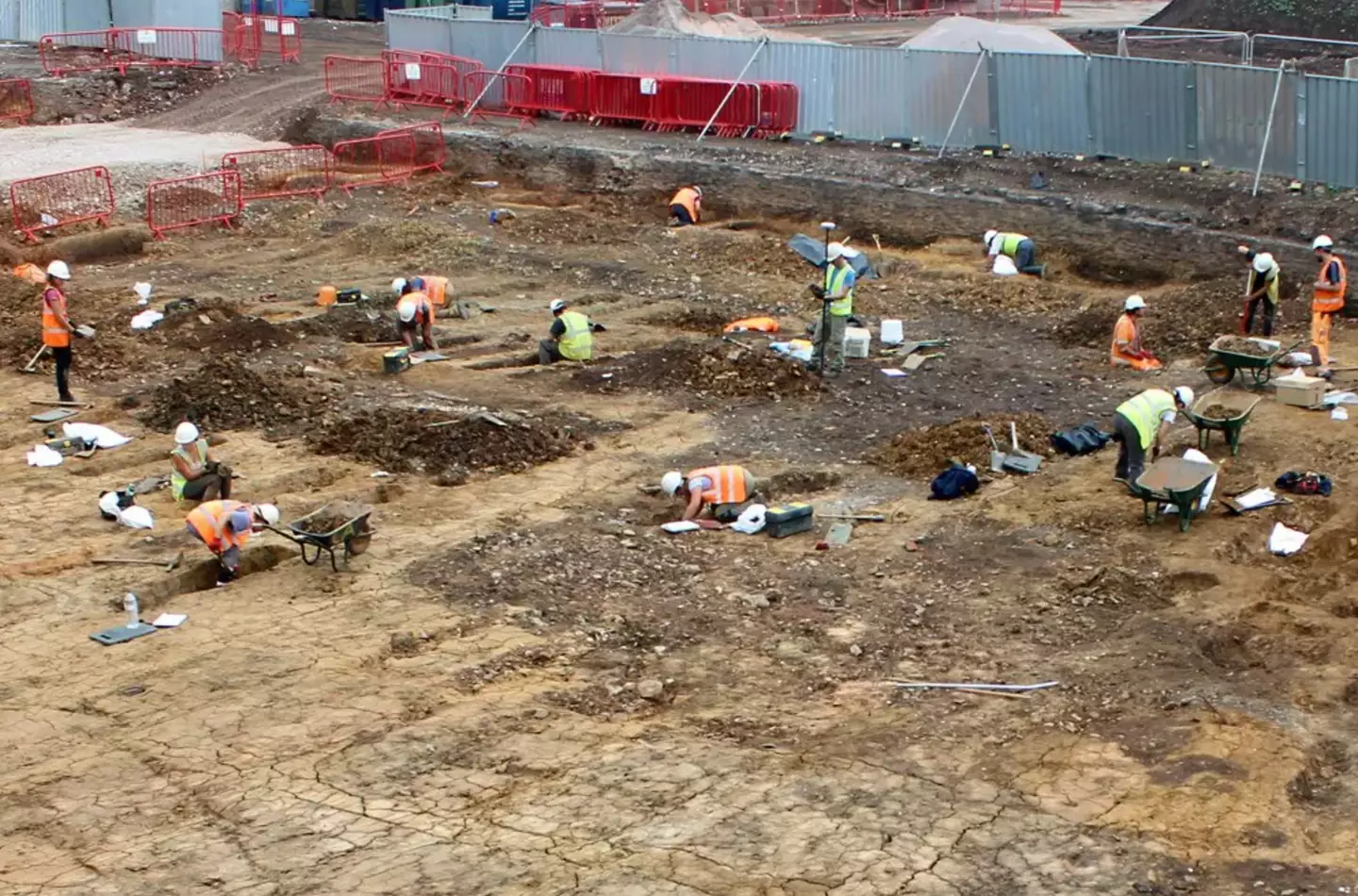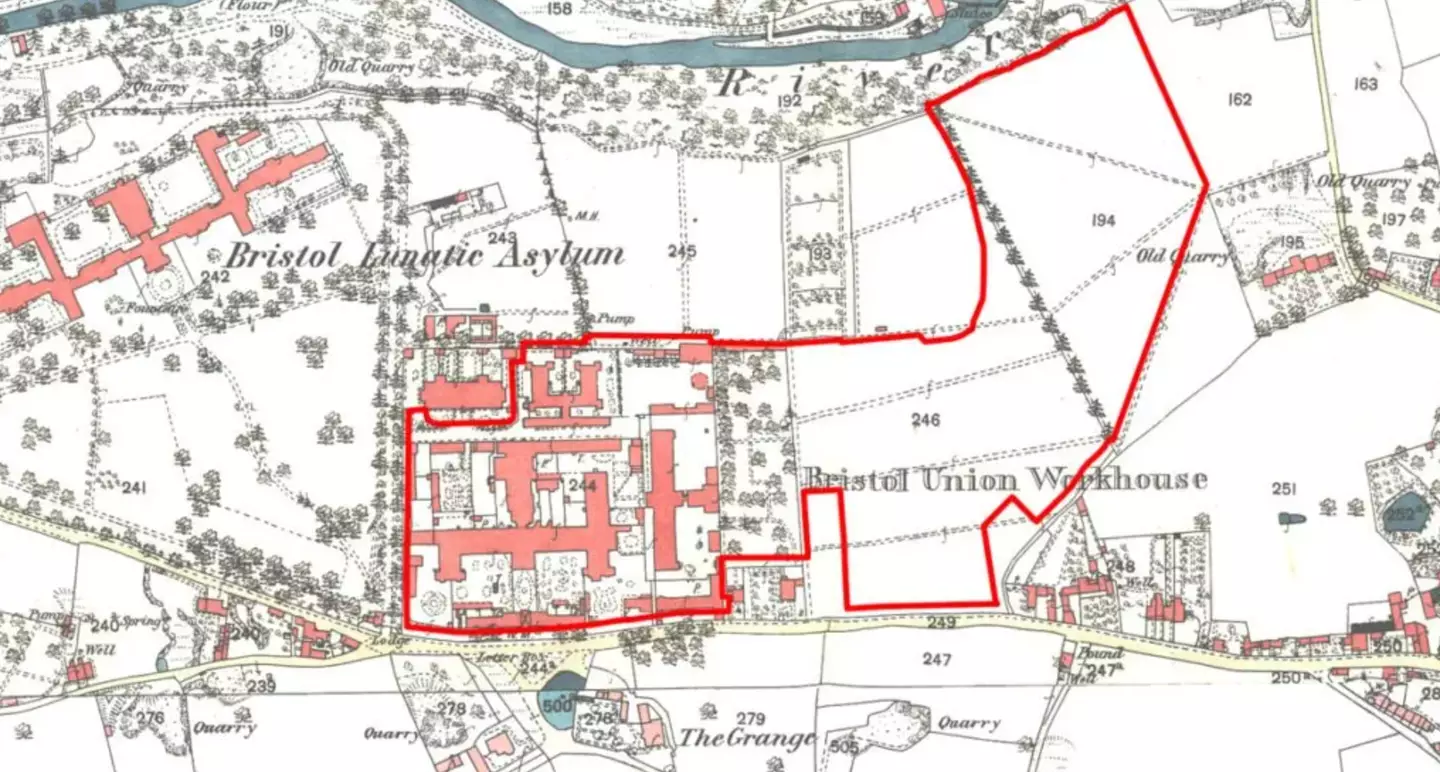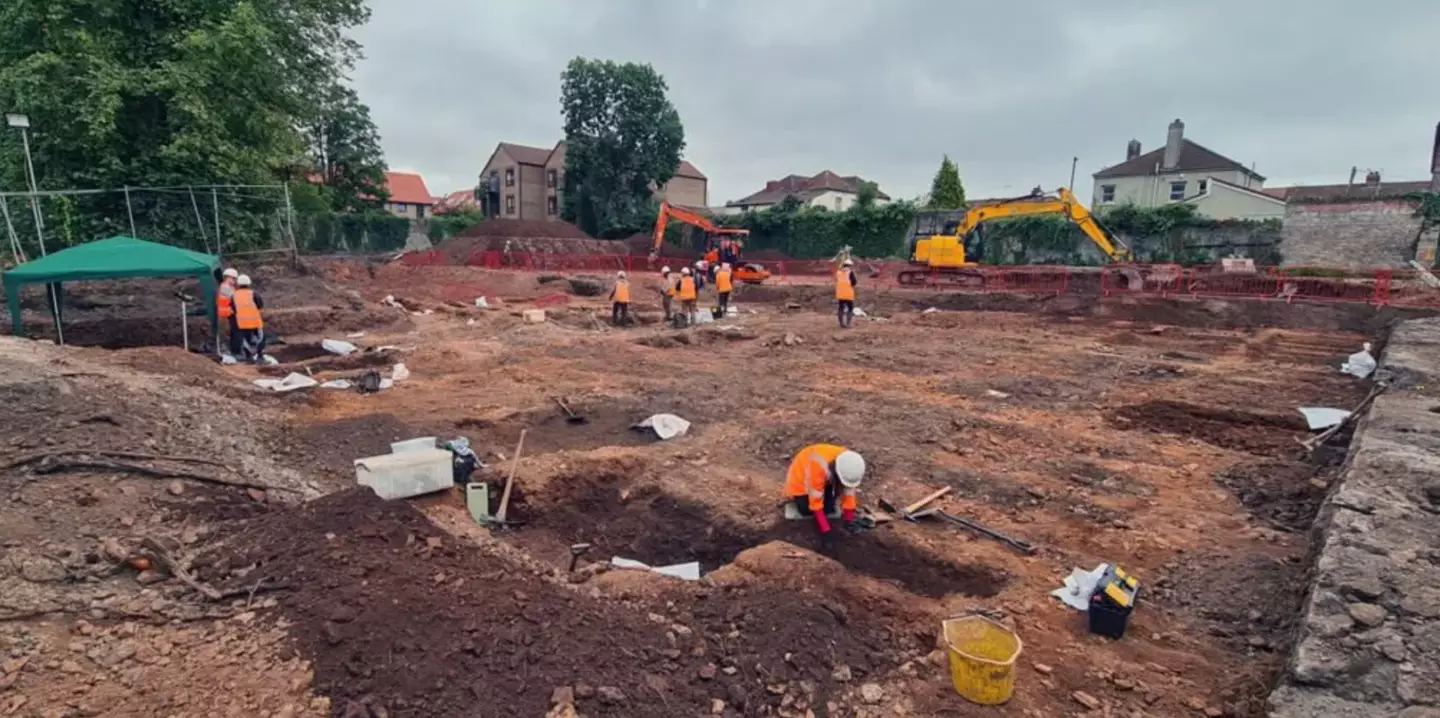
There's been a grim discovery in the Stapleton area of Bristol.
Cotswold Archaeology carried out a dig at a site in the British southwest from 2018 to 2023, with the location needing to be dug up by experts before undergoing a planned redevelopment, and an official report has now come up.
It was last known as Blackberry Hill Hospital, but prior to that, it was known as Stapleton Prison, and as you'd imagine, there's a lot of history behind it.

Advert
Stapleton Workhouse was first developed in the late 1700s, when Stapleton Prison was still around, and it would house prisoners of war from Britain's several conflicts with other European nations and the US.
But then, in 1832, a cholera outbreak forced the site's transformation into a hospital, as it also had a favourable location on the edge of the city, before temporarily becoming a workhouse five years later.
It later reverted back to a hospital, which closed in 2007.
During its time as a workhouse, poorer members of society that were destitute or sick were sent there, with many dying there and being buried in unmarked graves.
Upon digging over the past few years, archaeologists discovered these mass graves, and were shocked by their findings.
Advert

Over 100 years later, Cotswold Archaeology have officially uncovered thousands of graves, Rosanna Price, Cotswold Archaeology’s engagement manager told Bristol Live.
“One of the most striking elements of the excavation is the discovery of more than 4,500 graves,” she admitted.
“These primarily date from the workhouse period, from 1837 to the late 19th century. Some burials may even date back to the site’s earlier function as a prisoner-of-war camp," Price revealed.
She noted that they were uncovered with 'full respect' for the 'site's history', explaining: "These findings provide an intimate window into the lives of ordinary 19th-century Bristolians who found themselves at the workhouse due to poverty and hardship."
Advert
Highlighting that the burials 'reflects a dark chapter in Bristol’s social history', Price said that the remains of these individuals and their belongings found during excavation will help them put their life stories together and better understand the time period.

She added: “Scientific analysis is ongoing, with researchers examining the remains to understand more about these individuals’ lives, health, and causes of death.”
A memorial ceremony is being planned along with the final reburials, to honour those who died.
The Diocesan Secretary from the Diocese of Bristol, Richard Leaman, highlighted: “The removal and reinterment of human remains have been carried out in a reverential and lawful manner, with a marker to bear witness to the new gravesite.”
Advert
However, the dig and its accompanying research is not yet complete, as several teams and academic experts are involved in the process, Price said.
“The findings from the excavation will be fully published in 2026, alongside a programme of public engagement to further share the results,” she concluded.